We’ve all been there – waking up late, in a state of panic, scrambling to come up with an excuse for why we’re running behind. In the world of endless deadlines and high-stake meetings, a valid excuse for oversleeping can save you from detrimental consequences. So, the next time you find yourself frantically searching for an explanation, take a breather and explore these 100 creative excuses for oversleeping that may cover your tracks and save your reputation.
Faulty Alarm Clock
Are you tired (pun intended) of the classic “my alarm didn’t go off” excuse? Well, sometimes it genuinely happens that our trusty alarm clocks fail us, and sleep comes out victorious. This may sound like an overused excuse, but alarm clock malfunctions are not as rare as we may think. In fact, acknowledging the countless brands, models, and engineering details that can go wrong, it’s a wonder our alarms even go off most of the time!
When relying on electronic devices, there’s always the possibility of a technical glitch, a drained battery, or even a software update that doesn’t have our backs. Lo and behold, you’re left to face the wrath of your slumbering subconscious, and reality comes knocking down the door when you come to the startling realization that you’ve been sleeping in.
Come on; modernity has provided us with an entire myriad of alarm clock types! There are digital ones, smart speakers like Amazon Echo and Google Home, and not to forget our infamous phone alarms, that we trust far too much. They all come with their set of potential problems: the volume wasn’t set correctly, the time zone suddenly switched, or the device turned off on its own.
And let’s not forget the classic analog alarm clock. Sure, it’s charming, but that little rotating dial can easily shift if bumped, resulting in the big sleep-in. You might even think you’ve set the alarm, only for it to never go off because the very mechanism failed you.
In the end, we all have to admit that sometimes technology can’t keep up with the essential task of getting us out of our cozy beds. The faulty alarm clock, though an infamous but often truthful excuse, teaches us yet another valuable lesson: always have a backup plan (or alarm) when it comes to counting on your devices to wake you up. After all, it’s better to be safe than sound asleep!
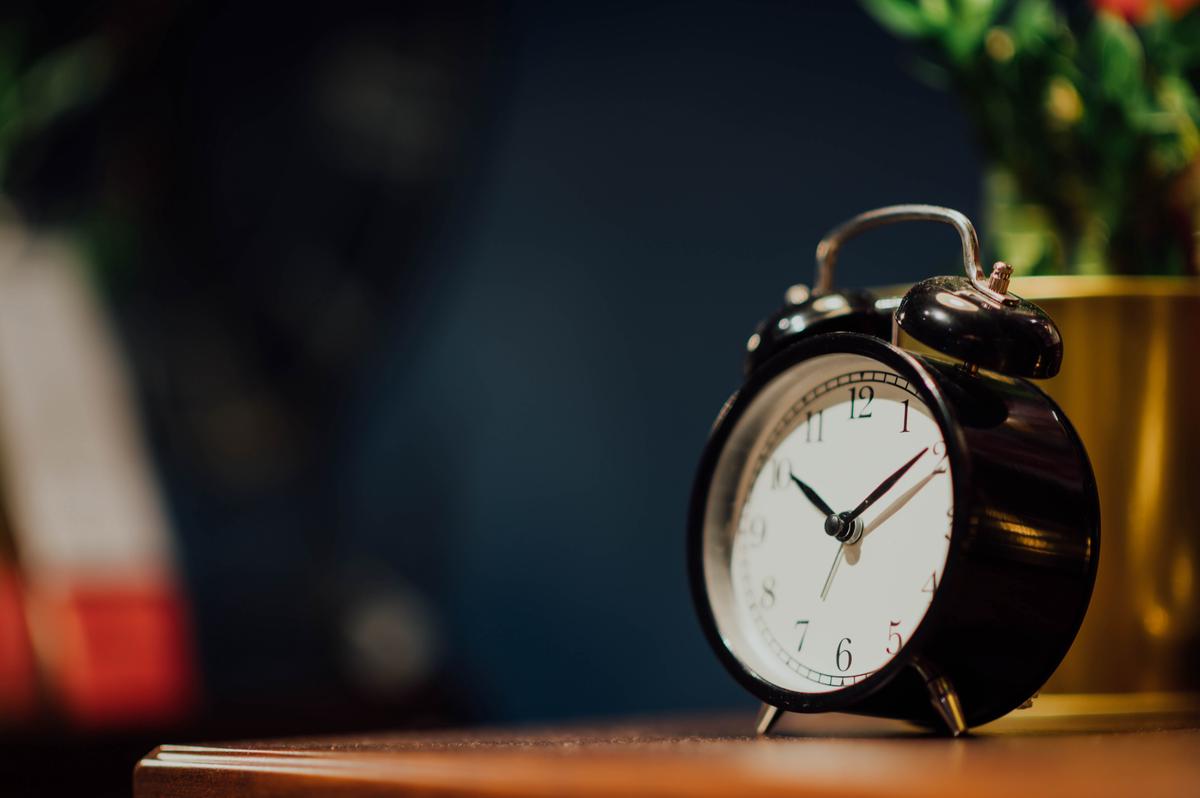
Photo by chuttersnap on Unsplash
Power Outage
Picture this: Your alarm clock was set for 7:00 am, allowing plenty of time for your morning routine, coffee, and a commute. However, unbeknownst to you, a power outage strikes your neighborhood in the middle of the night. This unexpected event resets your alarm clock or even worse – prevents it from going off altogether.
In a flash, (or rather, a lack thereof), your punctual and prepared morning has evaporated into a frenzy of frantic dressing and brushing. As you curse the fickle nature of electricity, you know deep down this is a valid reason for your late arrival. After all, it was purely out of your control.
A power outage can be caused by numerous factors such as inclement weather, equipment failure, or sometimes even mischievous squirrels at the transformer (yes, really!). While power companies work diligently to maintain and repair their electrical grids, these unanticipated events are inevitable. In these circumstances, even waking up to the natural sunlight can be a gamble, as seasonal shifts or cloudy mornings might leave you in the dark, quite literally.
Moreover, this isn’t just a problem faced by alarm-clock users; it can affect smartphone users as well. Power outages can lead to Wi-Fi disconnections, which in turn, might prevent you from getting important notifications or calendar reminders. It’s a good reminder for us to always have a backup plan, like a battery-powered alarm clock or a phone charging bank.
So the next time a power outage disrupts your morning plans and lands you into the list of oversleeping excuses, try not to be too hard on yourself. After all, you can’t fight the forces of nature, and it serves as a humbling reminder that we’re all at the mercy of a functioning electrical grid.
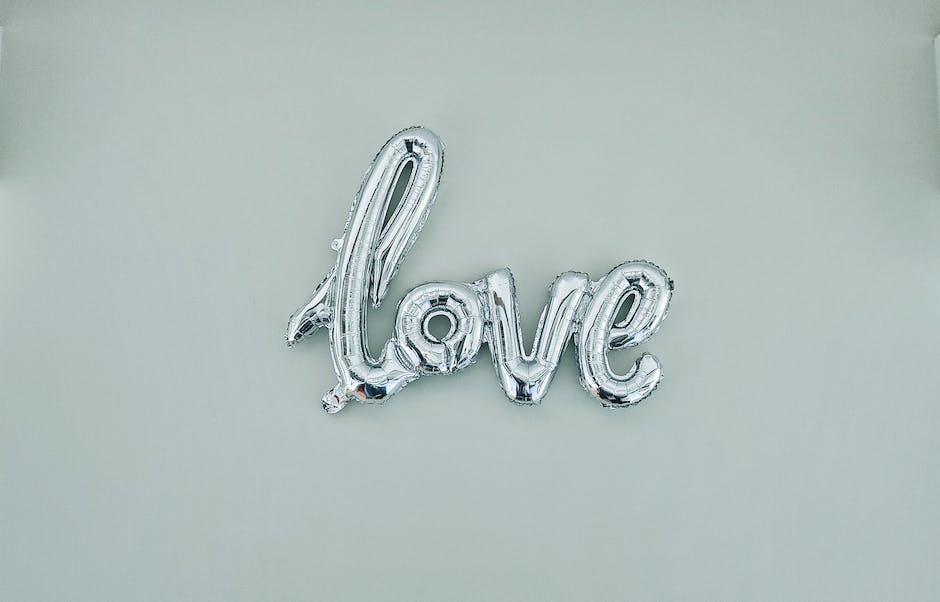
Sick Pet
We’ve all heard the classic “dog ate my homework” excuse, but what about the “sick pet kept me up all night” scenario? Many of us have experienced the heartache and worry of having an unwell pet at home.
Picture this: it’s late, you’re tucked into bed, and suddenly your furry friend begins to whine or cough. Your first instinct is to spring into action, making sure your beloved companion is okay. You find yourself googling remedies at 2 am and possibly making a trip to the 24-hour emergency vet. Your entire night is consumed with comforting your pet and ensuring their wellbeing. Before you know it, your alarm is going off, and you’ve barely gotten any sleep. You snooze it only to wake up in a panic, realizing that you’ve overslept because of your concern and care for your sick pet. While this excuse might not be as common, it’s worth putting on the list for those days when our precious pets have an ill-timed emergency and unintentionally disrupt our slumber.

Unexpected Allergic Reaction
We all know that allergies can be pesky, but what about when they directly impact our sleep schedule? You might be surprised to learn that having an unexpected allergic reaction can be a legitimate excuse for oversleeping.
Picture this: You were minding your own business and going about your daily tasks, when all of a sudden, your nose starts itching, your eyes water uncontrollably, and you develop a rash on your skin. It’s pretty clear that you’re experiencing an unexpected allergic reaction, and you need to take action immediately.
You consult your doctor or pharmacist, and they recommend an over-the-counter antihistamine to alleviate your symptoms. Antihistamines can be a real lifesaver in situations like these, as they work by blocking the production of histamine – the compound responsible for most of our allergy symptoms. With the promise of relief in sight, you eagerly take the medication and hope for the best.
However, the downside of many antihistamines is that they can make you feel extremely drowsy. That’s because they can have sedative effects on the central nervous system, which is responsible for regulating sleep. As a result, you may find yourself yawning more than usual and struggling to keep your eyes open. This drowsiness can be so overwhelming that it becomes nearly impossible to resist the urge to sneak in a few extra hours of sleep – hence, the perfect excuse for oversleeping.
In fact, this exact scenario can happen to anyone – and it doesn’t always involve an allergy to pollen or pet dander. A variety of substances, including foods, medications, and even certain plants, can cause an unexpected allergic reaction, leaving us needing an antihistamine and some extra shut-eye.
So the next time you find yourself oversleeping because of an unexpected allergic reaction, don’t beat yourself up too much. After all, it’s a genuine reason for needing extra rest to recover and get your body back on track. Just make sure to consult your doctor or pharmacist about alternative medications that may cause less drowsiness if the situation becomes a common occurrence.
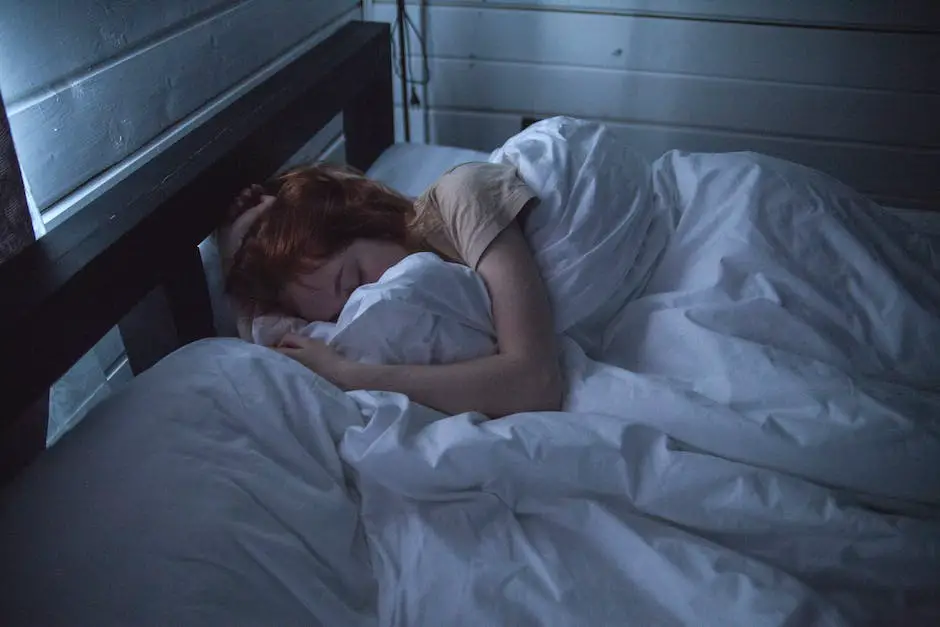
Miscommunication
Ah, the pitfalls of miscommunication – something we’re all familiar with! Isn’t it just the most frustrating thing when you’re planning your day with military precision, only to find out that there’s been a mixup in the schedule? It’s the perfect storm, really.
Here’s how it usually goes down:
- You’re in a group chat or email conversation, and everyone’s exchanging details about an important meeting or event.
- Folks are throwing around times, locations and messages are coming in fast and furious.
- In the sea of information, someone mentions a specific time, but you miss the follow-up message where they correct themselves.
- You skim through the conversation later and glance over the revised time, never realizing that you’ve mentally locked in the wrong start time.
Flash forward to the night before the event. With confidence, you set your alarm for your usual wake-up time, giving yourself ample opportunity to get ready and show up punctually. But fate, being the cruel mistress that it is, has other plans. As you peacefully snooze away, completely unaware of the ticking time bomb, the meeting or event is already in full swing.
When the shocking revelation finally dawns on you, it’s too late – your reputation is on the line, and you’re scrambling for a way to make things right. So, you hurriedly type out a message, trying your best to explain the mix-up: “I am SO sorry, guys! There was a miscommunication about the start time, and I only just saw the corrected information. I’m on my way now, but I totally understand if you’re mad. This is on me, and I’ll make it up to you!”
And while this excuse may not completely absolve you from the error, it usually earns you some understanding nods and sympathy from your comrades. They’ve been there too – at the mercy of miscommunication, swept away by a sea of wrong information. So, next time you find yourself in such a situation, remember, you’re only human, and it’s okay to admit that sometimes, we just get things wrong!

Time Zone Confusion
We’ve all heard of jet lag wreaking havoc on our bodies after a long flight, but what about the sneaky culprit that leaves us disoriented with our sleep schedule even after reaching our destination – the infamous time zone confusion!Time zone confusion ensues when your internal clock hasn’t quite caught up to your new time zone, and your brain continues to operate on the schedule from another part of the world.Picture it: You’ve just returned from an exciting European adventure, and you’re eager to settle back into your daily routine.But what you didn’t anticipate was the trouble you’d face the morning after your triumphant return to your home sweet home.As you tuck yourself into bed, you can’t help but calculate the time difference and check the local time in Paris.Your eyes eventually flutter shut, and you drift into a peaceful slumber, confident that you’ll wake up feeling refreshed and ready to tackle the day.But fate has other plans.Your alarm sounds, yet it feels like the middle of the night.You groggily hit snooze, giving yourself a few extra minutes to catch some Zs.You can’t help but feel angry at your internal clock for failing you when you needed it most.Or perhaps it’s a week-long business trip that has you crisscrossing the country, attending meetings with people from different time zones daily.Your body thinks it’s dinner time, but you’re sitting in an early morning presentation, trying to stifle the yawns and keep your eyes open to pay attention.The confusion only grows if you’re in a country that observes daylight saving time, adding even more unexpected changes to your much-needed rest.As the days go by, you find yourself oversleeping more often than not, as your body struggles to adjust and synchronize with the current time zone.Gone are the days of the easy, breezy eight-hour sleep cycle you were used to!Time zone confusion is a nemesis that doesn’t discriminate; it affects students, professionals, and travelers alike.But while it’s not ideal, it’s a small price to pay for expanding our horizons, experiencing new cultures, or closing important business deals.So the next time you find yourself oversleeping due to time zone confusion, remember: your internal clock will eventually catch up, and you’ll be back on track before you know it.But maybe stock up on some coffee and energy bars in the meantime, just to be safe.
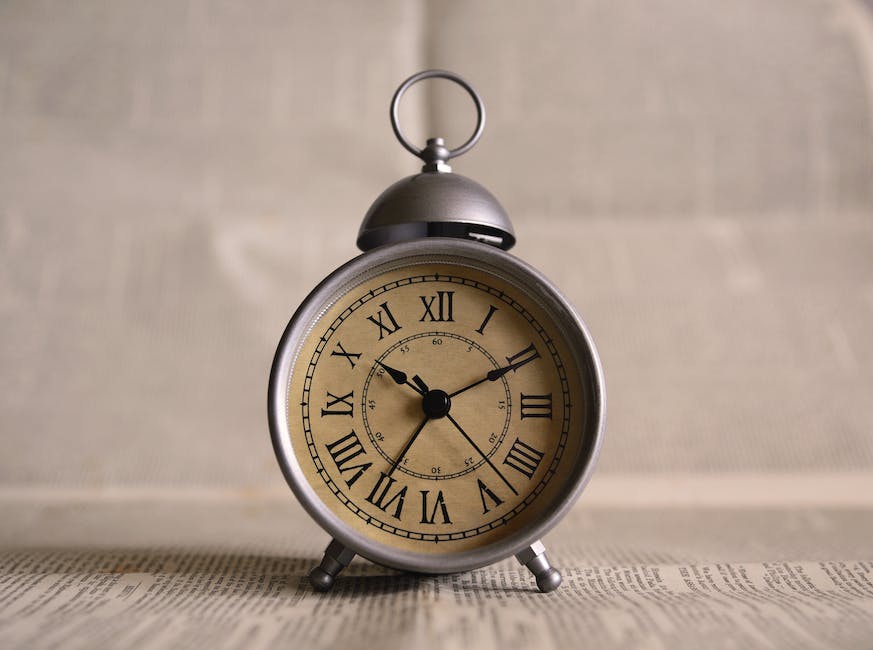
Insomnia
Picture this: After a long and hectic day, you drag your body to bed, craving for the sweet surrender of sleep. You dive under the covers, snuggling into the soft pillows, and closing those tired eyes. But, instead of drifting off effortlessly into the dream world, you find yourself trapped in a seemingly never-ending cycle of tossing and turning, checking the time every five minutes, and dreading the sound of your alarm clock coming all too soon.
You, my friend, have fallen victim to insomnia – a sneaky thief that robs you of the precious hours of rest you so desperately need. For those who have never faced this sleep-stealing monster, it may seem like a bizarre concept. How could someone not sleep when they’re exhausted? Unfortunately, those who have experienced it know all too well the frustration of desperately wanting to sleep, yet being entirely unable to.
So, after multiple hours of frustration, you finally enter the realm of slumber, only to be rudely awakened by the sound of your alarm indicating it’s time to start the day. Sleep has barely grazed the surface, and now you’re expected to function like a well-oiled machine at work or school. It’s a cruel joke, isn’t it?
Oversleeping becomes an entirely justified, almost mandatory action in this scenario. After all, how can you be expected to perform at your best when your brain feels like a sluggish computer running low on battery? Your body craves that extra hour (or two) of sleep, just to recharge enough to face the day ahead.
So, when faced with the unavoidable question, "Why did you oversleep?" Don’t be ashamed to pin the blame on the mischievous entity known as insomnia. You deserve those extra precious moments of rest, and who knows, tonight might be the night you finally manage to outsmart this elusive sleep thief and claim your rightful hours of peaceful slumber.

Sleepwalking
Picture this: you’re sound asleep, tucked in your cozy bed, dreaming of your favorite vacation spot. Suddenly, you find yourself wandering around the house, completely unaware that you’re actually physically up and about, exploring your surroundings like a half-awake nocturnal creature. That’s right, you’ve become a sleepwalker, and as entertaining as it might sound, your midnight wanderings are likely causing your body some much-needed rest.
Now, before you panic about the idea of roaming around in a sleep-induced stupor, sleepwalking affects a surprising amount of the population. In fact, you might have already experienced it yourself without even realizing it. Sleepwalking, also known as somnambulism, typically occurs during the deepest stages of sleep. When this nighttime adventure carries on for longer durations, or when the sleeper is woken up during their sleepwalking episode, exhaustion is bound to follow.
So, how does this translate into a valid excuse for oversleeping? It’s simple. Sleepwalking episodes—whether it’s opening the fridge, rearranging the books on your shelf, or wandering aimlessly around the house—are physical activities that burn energy. As your body works overtime to navigate your environment and keep you from harm, your muscles understandably tire. Add this to the fact that sleep is fragmented, and it’s no wonder you wake up feeling like you could sleep for a few more hours.
Moreover, sleepwalking can have a significant impact on your overall quality of sleep. When your body doesn’t have the chance to cycle through the various stages of sleep—including all-important REM sleep—it can leave you feeling groggy and disoriented the next morning. In essence, your nighttime strolls are stealing precious hours of restorative rest, leading you to oversleep just to catch up.
Now, don’t be alarmed if you’re a sleepwalker or the occasional somnambulist. It’s not a failing of your system; our mysterious brains sometimes have a mind of their own. Instead, think of your late-night escapades as a secret double life, one where your resting world merges with reality in a fascinating way. And hey, if you’ve ever wondered why you woke up feeling extra tired on a seemingly normal night, you might have just found the perfect excuse: sleepwalking your way into daytime exhaustion.

Daylight Savings Time
Ah, Daylight Savings Time – the biannual event that seems to creep up on us and tinker with our clocks at the most unexpected moments. With the somewhat controversial time shift causing us to “spring forward” or “fall back” an hour, it’s easy to find yourself completely bewildered on the morning-after when your alarm suddenly goes off an hour earlier or later than anticipated.
For those who rely heavily on their internal body clock or routine, the abrupt adjustment of daylight savings time can result in a temporary sleep schedule catastrophe. The mismatch between your external world and your internal clock can lead to some major conundrums as you try to navigate your day.
Think about that time you had set your alarm, determined to rise-and-shine but somehow waking up an hour off schedule. You hurriedly glance at the clock on your nightstand, only to realize you’d completely forgotten that daylight savings time had begun, or ended (depending on the season), which in turn led you to accidentally set your alarm wrong.
In these moments, it’s hard not to secretly appreciate the seemingly arbitrary time change, not just because it gives you a well-earned extra hour of shut-eye in the fall, but also because it definitely makes for an excellent excuse to pull out of your sleeve when explaining your late arrival or grogginess to anyone that day.
Moreover, it’s not just our own forgetfulness or busy lives that cause us to miss out on these adjustments. Sometimes, technology fails us too! Remember that one fateful day when your smartphone should’ve automatically updated the time change, but alas, it decided to take a more “retro” approach and stay behind? No digital alarm clock is fool-proof, and that can add an extra layer of confusion and chaos.
So, whether it’s a mix-up in alarm settings or technology betraying us, daylight savings time undoubtedly provides us with creative and legitimate excuses for oversleeping. Just make sure to set a reminder for the next round to avoid the consequences of temporal disorientation.
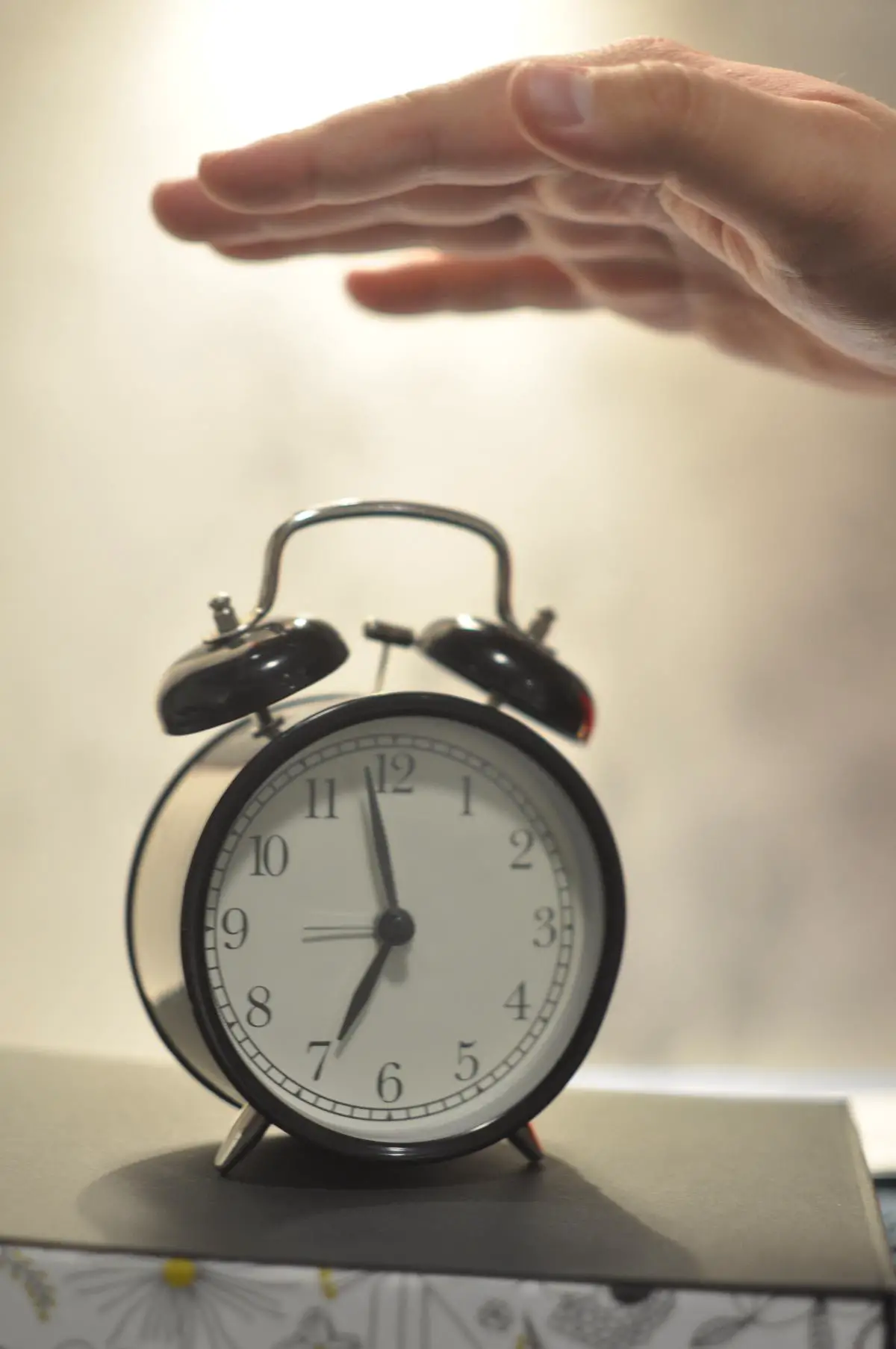
Photo by mstyazhkin on Unsplash
Neighbor Disturbance
Are you familiar with the saying “Good fences make good neighbors?” Well, sometimes even the best fences can’t block out the noise from a rowdy neighbor who just can’t seem to understand the concept of quiet hours or personal space.
Whether they’re blasting their favorite tunes, having an all-nighter with friends, indulging in a DIY home improvement project, or carrying out any other disruptive activity, a noisy neighbor can put a serious dent in your sleep schedule.
Tossing and turning all night as you attempt to drown out the commotion, you ultimately end up hitting the snooze button one too many times in a desperate attempt to catch up on some much-needed rest. When confronted about your oversleeping, you can’t help but point a finger at your inconsiderate neighbor who clearly doesn’t value their own sleep, let alone anyone else’s.

Family Emergency
Picture this: you’re all set for a good night’s sleep and a productive day ahead. Suddenly, the phone rings, and you’re met with the news of a family emergency. The urgency of the situation requires all hands on deck, and just like that, you find yourself taking on the role of a support system for a loved one, coordinating for their care, or dealing with other unexpected situations.Throughout the night, you’re pulled in multiple directions, barely having a moment for yourself. In between the emotional toll, multiple phone calls, and a frenzy of activity, your initial plans for a peaceful slumber have fallen by the wayside. The sun rises, leaving you utterly drained but committed to doing all you can for your family.As the long night finally ends, you find yourself minutes away from being completely immobilized by exhaustion. With more responsibilities on the horizon and an already blown-out schedule, you feel that a few moments of rest are not just necessary but a must for maintaining your sanity.Surrendering to the sheer fatigue, you close your eyes for a moment, only to wake up hours later, jarred by the realization that you’ve overslept. While a cloud of guilt and anxiety veils your mind, you remind yourself of the genuine family emergency that kept you up.In the end, the unpredictability of life and the demands of a family emergency have left you in a spot where grasping for the chance of much-needed rest was unavoidable. Oversleeping in this circumstance isn’t a sign of laziness or irresponsibility; it’s merely a consequence of tending to the well-being of loved ones and navigating unanticipated challenges.
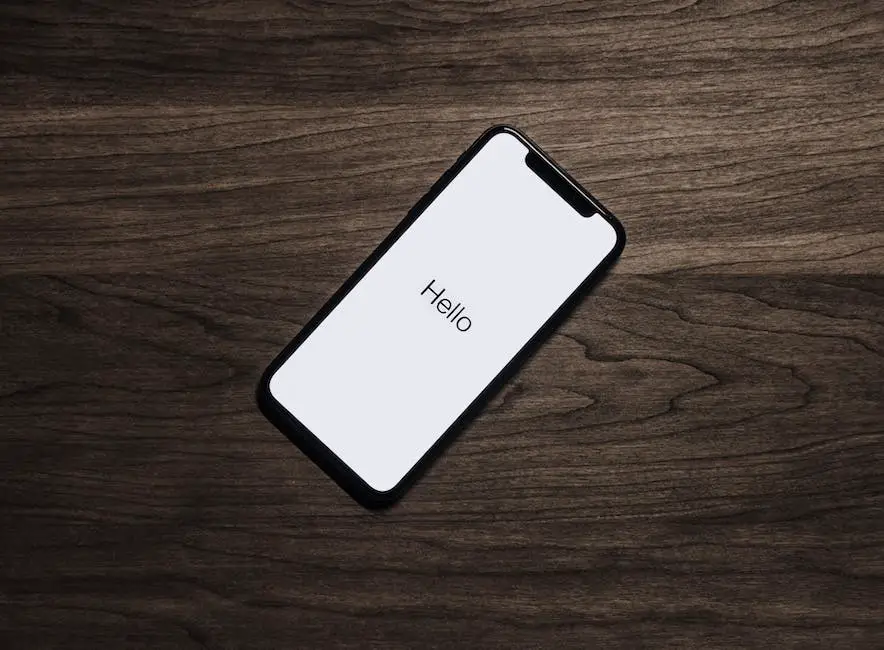
Late Night Delivery
Who doesn’t love the convenience of a late-night delivery? It’s like a magical genie that answers our wish for that much-needed package. But sometimes, this magic comes with a catch – the long, almost never-ending wait to receive it. The anticipation of receiving an important late-night delivery is like a ticking time bomb, and it can keep even the sleepiest of us wide awake and staring at the clock. Plus, factor in the potential for delays or misplaced items, and the hours can quickly slip away into the night.Whether it be that crucial package for work or a personal item you’ve been eagerly awaiting, the anticipation of its arrival is something we’re all guilty of experiencing. The need to be present to sign for the delivery or to ensure its safe arrival only adds to the stress of staying awake past your bedtime. With every tick of the clock, your eyelids grow heavier and your mind grows more restless, but the determination in waiting for your important delivery remains steadfast.Moreover, when the delivery finally arrives, your inner peace and sense of calm are restored. The problem now lies in the fact that you’ve been awake for hours past your usual bedtime, trying to keep yourself occupied while waiting for that ever-important knock on the door. The adrenaline rush from finally receiving your package begins to wear off, and sleep slowly creeps in.But just like an uninvited guest, this late-night visitor – unexpected and unwelcome in the wee hours of the night – has thrown off your sleep schedule, leaving you struggling to return to your normal routine. That exciting and much-anticipated delivery brings with it a price: Your now-altered sleep schedule, which leaves you groggy, disoriented, and desperately seeking excuses for your oversleeping.So the next time you find yourself wide-eyed and bushy-tailed at an ungodly hour, anxiously awaiting that late-night delivery, remember that it may come at a cost. From the late-night munchies to missed alarms and last-minute deliveries, sometimes the modern world’s conveniences can also create a perfect storm for a restless night, ultimately leading to the dreaded excuse of oversleeping.

Lost Glasses or Contact Lenses
Imagine this: you wake up in the morning, ready to take on the day, only to realize you have no idea where you put your glasses or contact lenses. You’re practically blind without these precious tools, and now your entire morning schedule is thrown off as you embark on a desperate journey to locate them. Time is ticking away, and you are starting to panic as you frantically search your house.
You rummage through your dresser, dive into the depths of your bag, and even look behind the couch, all to no avail. You’re forced to consider the fact that maybe you left them at work, or perhaps they’ve fallen into the mysterious void that seems to swallow all of your missing items. Your vision, that was just fine the day before, now seems to be a distant memory.As you continue to blindly navigate your home, you begin to feel the looming weight of the consequences for your tardiness – whether it’s work, school, or appointments, you know that oversleeping is not an option. But in your current state, there’s no way you can face the world, let alone drive!Stumbling through your home, you detect shadows that could be your furry friend or just a rogue sock. Finally, after what feels like hours, you have a eureka moment as you find them hiding in the one place you didn’t expect – maybe they’re under your bed or in-between the bathroom towels.Though you breathe a sigh of relief the moment you put on your glasses or insert your contact lenses, you realize that it wasn’t just a minute or two that you spent searching. The whole fiasco has set you back significantly in time.You can’t help but feel that this could have all been avoided if you’d simply set a habit of placing your glasses or contact lenses in the same place every night. Grateful and somewhat chastened, you make a mental note for the future: every evening, you will have a designated spot for your sight-giving saviors.And the next time you’re asked about your late arrival, you can share this relatable and frustrating ordeal. Though it might be seen as just another excuse for oversleeping, one thing is for certain: not being able to find your glasses or contact lenses is a real eye-opener about the importance of a consistent routine in daily life.

Underestimated Sleep Need
We’ve all had those days when we think we can function on just a few hours of sleep the next day, only to wake up realizing that we couldn’t have been more wrong.
Our bodies and minds require a certain amount of sleep to perform at their peak, and sometimes we just don’t give them what they need.
Whether it’s because of our ambitious plans to catch up on that exciting new TV show or a late-night cramming session, we may unintentionally deprive ourselves of the sleep we truly need, leading to oversleeping.
You may start by convincing yourself that one more episode won’t hurt, or that sacrificing a few hours of sleep will make you feel more accomplished in the morning.
However, your body’s natural sleep cycle will remind you that it’s just not that simple.
When you set that alarm for 6:00 AM – optimistically hoping to squeeze in a workout – it will most likely be met with frustration as your body struggles to pull itself out of much-needed rest.
Our bodies go through multiple stages of sleep throughout the night, and you may find that missing out on those critical stages can not only lead to your brain feeling foggy but also your body feeling achy and slow.
So, the next time you’re contemplating whether to finish the latest season of your favorite show or hit the hay, think about the impact an underestimated sleep need could have on your day.
It’s important to remember to listen to our bodies and prioritize sleep.
By doing so, it can lead to increased productivity, better concentration, and overall better mental and physical well-being.
To avoid underestimating your sleep need, establish a routine and aim for that crucial 7 to 9-hour window every night.
That way, you’ll be less likely to reach for that snooze button and more likely to start your day feeling refreshed and ready to tackle whatever is ahead.
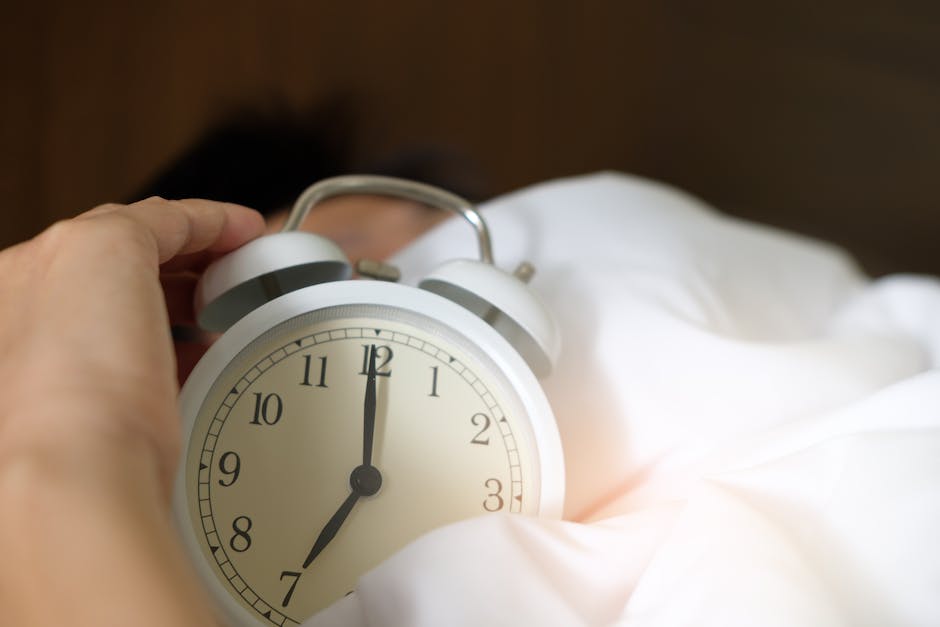
Temporary Amnesia
Imagine this: you open your eyes one morning, and a sudden panic hits you as you realize you can’t remember anything from the previous day. It’s as if your memory has been wiped clean, and you’re trying to piece together the missing puzzle pieces of yesterday’s happenings. This unexpected and bewildering situation can certainly throw a wrench in your morning routine as you struggle to process the seemingly overnight memory loss.
While the sleepiness still lingers, you start to question your own sanity. Was there something in last night’s dinner that could cause memory loss? Did you hit your head just before bed without realizing it? These, and many other frantic questions, buzz through your mind, making it impossible to do anything but stress and waste precious moments in bed.
As you spend more time in bed racking your brain for any shred of a memory from the day before, you further delay your daily tasks. Breakfast goes untouched; your workout is skipped, and even work emails sit idly in your inbox, awaiting your attention. This temporary amnesia has derailed your entire morning and left you confined under the blankets, grappling with your mysterious memory loss.
Later in the day, as you slowly begin to piece together the fragments of the previous day’s events, you might find that this amnesia spell was only temporary. This sudden, albeit brief, lapse in memory could have been the result of various factors, such as stress, sleep deprivation, or even a kind of mental block. Nevertheless, the intense, often terrifying experience of forgetting an entire day’s worth of memories is undoubtedly a compelling excuse for oversleeping.
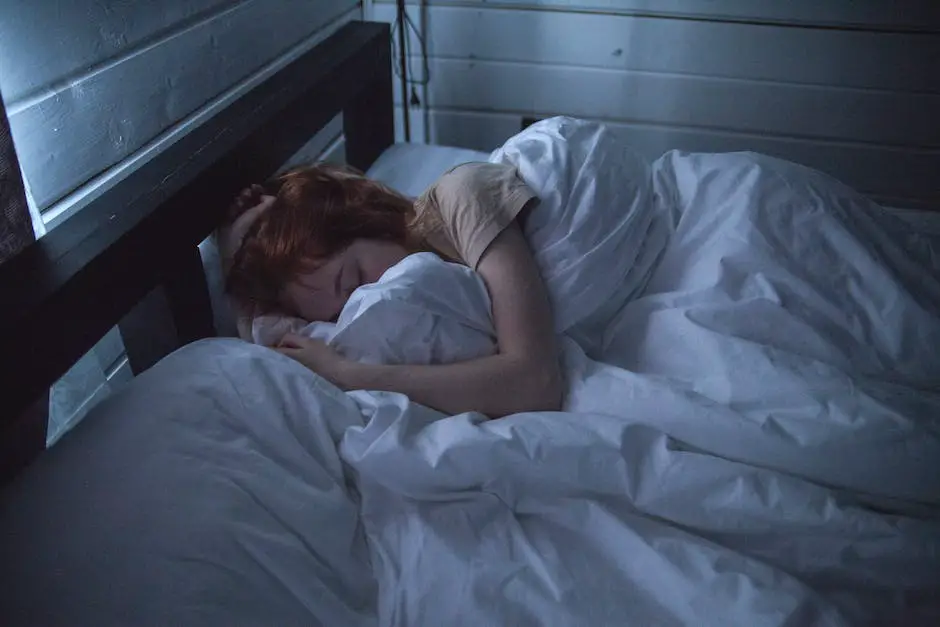
Fire Alarm Test
You just can’t seem to catch a break, can you? Just when you thought you were getting a good night’s sleep, the ear-piercing sound of a fire alarm shattered the peace and tranquility of the night.
That’s right, your building had a fire alarm test, almost as if it knew you desperately needed those precious hours of sleep!
As annoying as it was, these tests exist to ensure everyone’s safety in case of a real emergency. But boy, do they take a toll on your rest!
During the night, the alarms blared at intervals, making it difficult for your brain to register whether this was a life-threatening crisis or just a drill. The stress and adrenaline were enough to keep you tossing and turning in bed while you wondered if a firetruck would pull up outside the building any minute.
Let’s not forget the aftermath – the constant ringing in your ears once the fire alarm test finally ended. Silence never seemed so sweet and sacred, but alas, stillness meant the realization that you had lost valuable hours of sleep, leaving you sleep-deprived the next morning.
So, while your boss or teacher might expect you to be on your A-game every day, how are you expected to perform well when a fire alarm test ruthlessly disrupted your peaceful slumber? Whether it was the adrenaline or the sore ears that followed, your well-rested plans went up in flames just like that – making this a perfectly valid excuse for oversleeping.
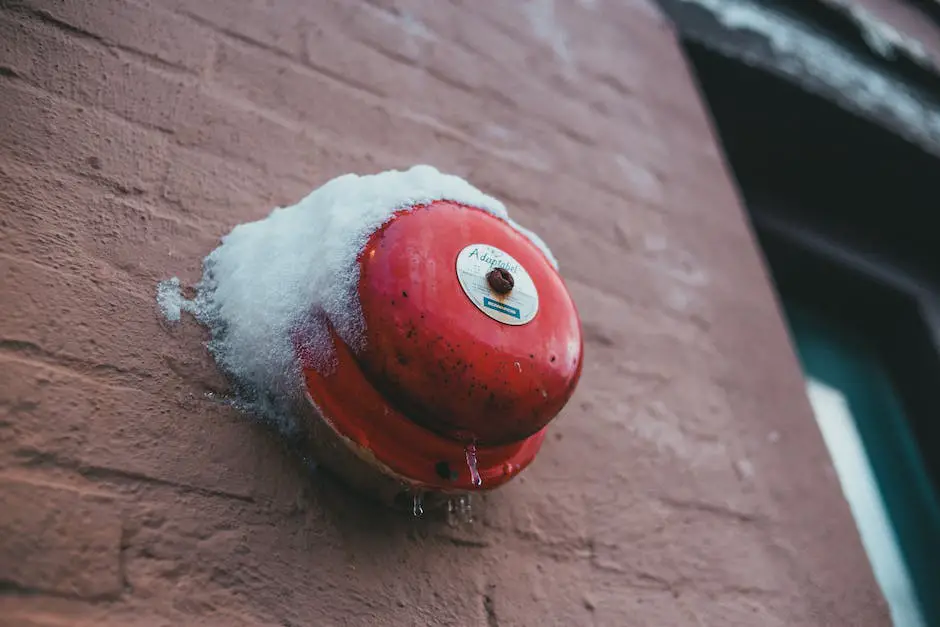
Phone Died
A silent morning, with the rays of the sun slowly seeping through the curtains, can be a double-edged sword. While it means a peaceful start to the day, it could also indicate that your phone died, and the alarm simply failed to go off. This, ladies and gentlemen, is a classic example of an “oversleeping excuse.” We’ve all been in this boat; we rely so heavily on our trusty cellphones to wake us up at the crack of dawn (or, let’s be honest, for that snooze marathon), but they too need a break.
Perhaps you forgot to plug it in before hitting the sack, or maybe it’s been giving you the silent treatment because you’re long overdue for an upgrade. Whatever the reason, you’re now left with the harsh reality of oversleeping, knowing that your day might be a chaotic scramble to catch up.
As much as we begrudgingly accept that nobody’s perfect, the same applies to our electronic sidekicks. So, next time you find yourself a victim of the phone-dying-no-alarm-going-off fiasco, remember that it’s not just you who needs recharging (literally and metaphorically), but also the devices that so loyally serve us. Until then, make sure you double-check that charger connection – or perhaps consider investing in a good old-fashioned alarm clock as a failsafe. Because while there are many creative excuses for oversleeping, a dead phone is one that people might just relate to and, quite possibly, forgive.
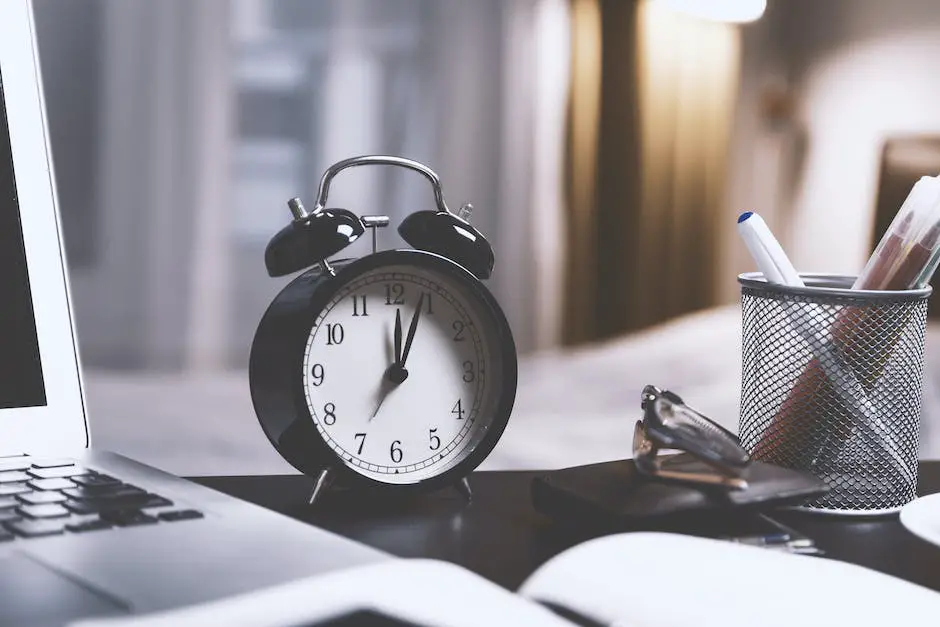
Netflix Marathon
If you’re a self-proclaimed TV show enthusiast or just love diving deep into the world of fictional stories, chances are you’ve found yourself caught in the captivating grip of a Netflix marathon – and you’re not alone.In fact, getting lost in a thrilling TV series to the point of staying up way past your bedtime is such a widespread phenomenon that “Netflix and chill” has become a household phrase.Think back to the time when you were desperately waiting for the weekend, promise yourself that you’d make it productive, but somehow, found yourself glued to the screen at 2 a.m., unable to resist clicking on “next episode.”Streaming services such as Netflix have cleverly designed their platforms, knowing full well that once we’re hooked on a new show, it’s almost impossible to escape the gravitational pull.This insatiable hunger for knowing what happens next in the storyline trumps any sense of responsibility towards maintaining a proper sleep schedule for most people.As a result, you end up oversleeping on a crucial day, experiencing the after-effects of a late-night Netflix marathon that was just too good to resist.Between riveting plot twists, dazzling visuals, and cliff-hanger endings, it’s understandable that we occasionally find ourselves sacrificing precious hours of sleep for the sake of keeping up with our favorite shows.But, as with any obsession, it’s essential to keep moderation in mind.Try enforcing self-imposed screen time limits or setting up a designated bedtime alarm to avoid the temptation of staying up all night binge-watching.Or, just embrace the occasional Netflix-induced oversleep, knowing that you’ll probably do it again the next time you discover a show that captures your imagination.

Late Night Snack
Have you ever found yourself raiding the refrigerator late at night, looking for a scrumptious snack to satisfy your late-night cravings? We’ve all been there, gobbling up a hefty meal or indulging in a decadent dessert just before bedtime. But, did you know that this seemingly innocent nighttime nosh could actually cost you some precious hours of sleep, and leave you scrambling for an excuse the next morning?Picture this: You’ve had a long and exhausting day, and all you want to do is crawl into bed and get some shut-eye. But, your stomach has other plans. It’s growling and grumbling, demanding your attention. So, you get up and head to the kitchen, where you end up devouring a large and heavy meal. You think, “Ah, that’s the spot! My belly is full, and now I can finally catch some Z’s.”However, the aftermath of your midnight munch might be less than pleasant when the alarm clock starts its morning serenade. Why is it that you can’t seem to shake off that grogginess, even after chugging down a cup of coffee? Here’s the pesky truth: Late-night snacking, especially involving large meals, can wreak havoc on your body’s internal clock and affect your sleep quality. When you consume food, your body’s metabolic processes kick in to digest and absorb the nutrients, which can cause a spike in energy levels – the exact opposite of what you want when you’re trying to doze off. Plus, lying down just after eating can lead to acid reflux, heartburn, or indigestion – all of which might make you toss and turn for hours.Moreover, a study published in the journal Obesity showed that late-night eating may disrupt your circadian rhythms, leading to feelings of sleepiness during the day. So, while you may have been able to drift off eventually, chances are you didn’t sleep as soundly as you should have. The result? You wake up feeling groggy, lethargic, and with a big ol’ cloud of sleep hanging over your head.So the next time you feel the urge to raid the pantry or order a late-night pizza delivery, consider the consequences of that late snack. Your body, sleep schedule, and the future-you who needs to be magically awake and alert in the morning, will thank you for resisting the temptation.

Post-workout Fatigue
Are you one of those fitness enthusiasts who prefers late-night gym dates instead of hitting the weights with the early birds? While burning those calories and releasing some endorphins can feel incredibly rewarding, working out too close to bedtime might just be a recipe for oversleeping disaster.
Post-workout fatigue is a real struggle, especially when you’re giving it your all during those late-night exercise sessions. It may seem counterintuitive, but sometimes, the energy boost you get from working out can quickly turn into exhaustion once your body starts to recover. You see, when you push your muscles to their limits, micro-tears occur which then require repair and rest – and that’s when you feel the fatigue setting in.
Now, if you decide to hit the sack right after an intense workout, chances are your body is still in recovery mode, and with those tired muscles craving rest, it’s all too easy to oversleep the next morning. Plus, let’s not forget about the elevated body temperature post-exercise, which can make falling asleep a tricky task. Going through your REM cycle might take a little longer, making you feel groggy and slow to rise when your alarm goes off, ultimately leading to you oversleeping.
So, before you plan your next night-time fitness endeavor, remember that timing is key! Make sure to give yourself enough time to wind down after the gym, allow your body to cool off, and don’t forget to prioritize a good night’s rest. Otherwise, you might find yourself waking up late and frantically coming up with an excuse for oversleeping due to post-workout fatigue.
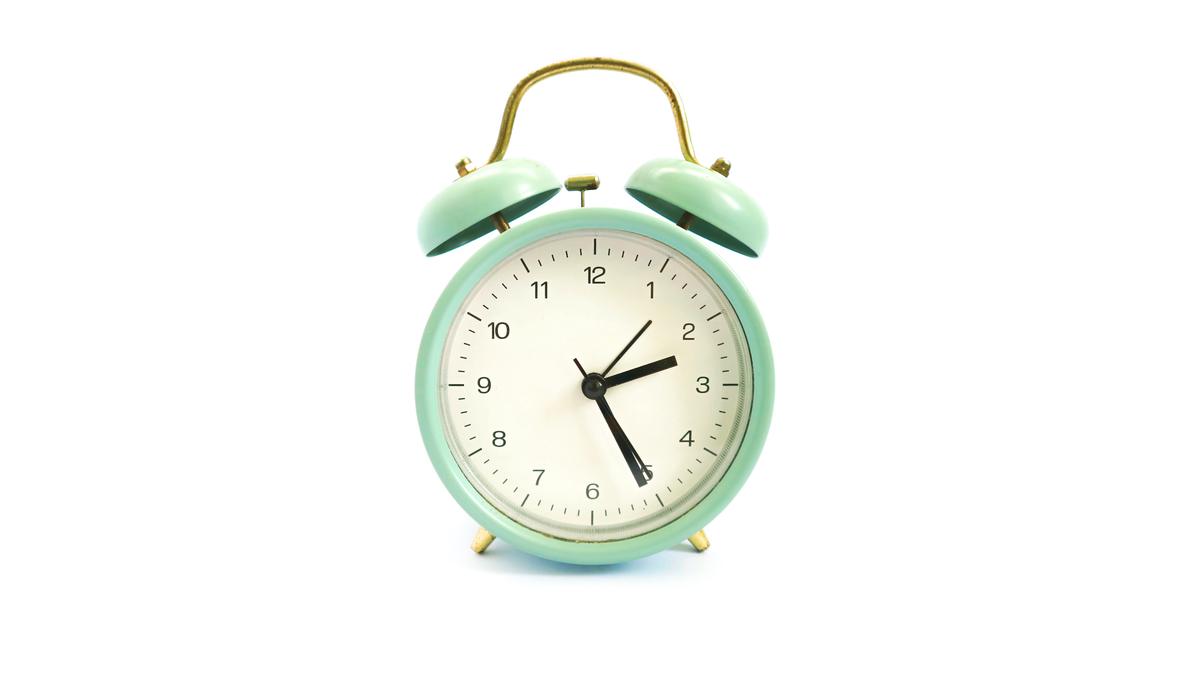
Photo by abdullishere on Unsplash
It’s important to remember that while these excuses may come in handy when you’re in a bind, it’s always better to prioritize your sleep and maintain a healthy work-life balance. A well-rested mind is more productive and focused, so establishing a regular sleep schedule will benefit you in the long run. Try not to depend on oversleeping excuses too often, but keep them in your back pocket for the occasional mishap. It’s always better to be prepared!

Recent Comments